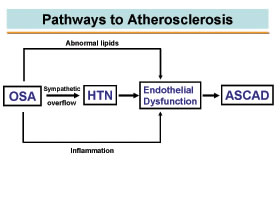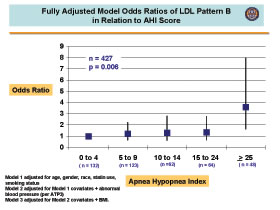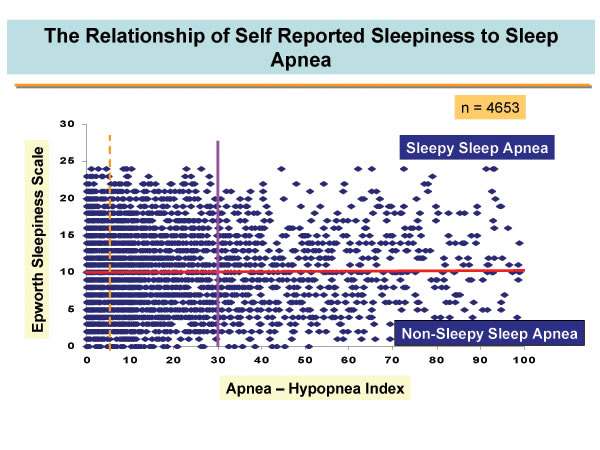Faculty Profile: PATRICK J. STROLLO, Jr., MD
Dr. Patrick Strollo’s Research
Dr. Strollo’s projects have examined the utility of portable monitoring for the diagnosis of sleep apnea, treatment of sleep apnea with new modalities of positive pressure and the impact of sleep apnea on cardiovascular risk.
His research has been funded by the Respironics, ResMed, National Football League, Department of Defense, National Heart Lung and Blood Institute and Pennsylvania Tobacco Settlement.

Animal and human data suggest that obstructive sleep apnea (OSA) leads to hypertension as a result of intermittent sympathetic overflow related to apnea / hypopnea events. This subsequently leads to endothelial dysfunction and ultimately atherosclerosis (ASCAD). Intermittent hypoxia may contribute to the elaboration of free radicals / inflammatory mediators. OSA may affect lipid metabolism resulting in atherogenic profiles further contributing plaque formation.

After adjusting for the likely confounding variables (i.e. age, gender, race, statin use, smoking, abnormal blood pressure and BMI), moderate to severe Sleep Apnea (AHI > 25) conferred a 3.6 fold risk of having an atherogenic lipid profile (LDL subclass B). Proceedings of the American Thoracic Society 2006 3:A871.

Substantial numbers of patients with severe sleep apnea (AHI > 30) do not report subjective sleepiness (Epworth Sleepiness Score < 10) and have been labeled as the non-sleepy sleep apnea phenotype (right lower quadrant). These patients are frequently difficult to treat and may have lower cardiovascular risk than the sleepy sleep apnea phenotype (right upper quadrant).
Division of PACCSM
Academic Offices
NW 628 UPMC Montefiore
3459 Fifth Avenue
Pittsburgh, PA 15213
412-692-2210
Patient Care and Referral
Comprehensive Lung Center (CLC)
Falk Medical Building, 4th Floor
3601 Fifth Avenue
Pittsburgh, PA 15213
412-648-6161



